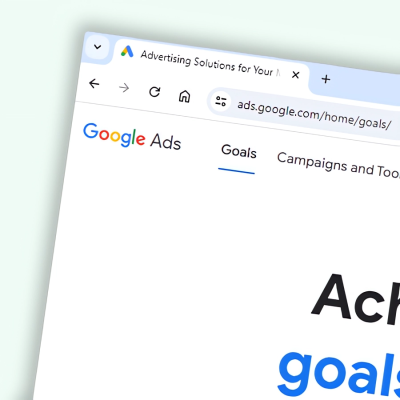There are over 365 million domain names registered across the globe, so in such a crowded space how do you find the right domain for you?
What is a domain name?
The domain name is what you type into the address bar to visit a website. Domains are unique and registered against central lists to prevent duplicates.

In the background, computers are using IP addresses, a string of numbers, to identify sites, but these are translated to the much easier to remember domains.
There are two parts that make up a domain name, the identification string (aka the first bit), for example, “infotex” and the ‘extension’ which is usually the part after the first dot, in our case “.uk”.
There is a massive range of domain extensions available with the most common and familiar being .com and .net. The majority of countries will also have geographically specific extensions (also known as country code top-level domains – ccTLDs) like .uk, .fr, and .de.
Extensions such as .info and .biz are part of the mix, and in 2011 ICANN launched the ‘new generic top-level domain’ (new-gtld) program which added thousands of extensions such as .yoga or .app, and continues to be added to.
Google was supposed to be Googol – a misspelling by a graduate student while checking domain availability was to blame
What’s a domain worth?
It’s often said that the value of any product is only what someone is willing to pay for it, however, the rights to some domains, especially short ones are coveted.
oa.com sold earlier this year for $600,000 however even this is eclipsed by the rental of vegas.com that could net its owner $90 million. Some companies even go so far as to value and insure their domain, cars.com was recently valued at $872 million.
With sought after domains on popular extensions fetching many thousands people have looked to other extensions to launch their brand online.
Forget .com, go .ninja!
As there are only a finite amount of .com or .co.uk domain names it is becoming harder and harder for new companies trying to find a suitable domain name. However, to address this, more and more extensions are being created.
- The list of alternate extensions include .digital, .energy, .shop, .store, .restaurant, .hotel and even .ninja!
- There are even a number of geographic extensions such as .london & .wales.
The aim of these new extensions is to more accurately describe your business (though we’re not sure how this works with .ninja…) and vastly grow the range of domains available.
Also consider whether your preferred choice of domain has any legal requirements – .eu domains require the operator to be within the European Union and as such from 1st Jan 2021 most UK businesses will no longer be eligible to hold a .eu domain.
Why not have your own extension?
In 2011 ICANN announced that they would allow brands to register their own top level extension, they received over 2,000 applications although many were subsequently declined, often due to the significant costs involved in running a domain extension. However some companies make use of this, such as Toyota’s global.toyota.
It still remains to be seen how popular many of these domain extensions will prove to be, and those which are not could be retired in the same way that .orientexpress lasted just a year [www.iana.org/domains/root/db/orientexpress.html].
With over 19 million domains, the most popular country-code extension is .tk – the small South Pacific island of Tokelau. The .tk is so popular due to their business model giving many domains for free.
.uk domains
All .uk domains are overseen by a government-supported body called Nominet. Infotex is proud to be Nominet members & tag holders meaning that we can directly register and manage .uk domains on behalf of our customers.
For most businesses based in, and primarily trading within, the UK, the most logical domain extensions are .uk or .co.uk although it’s possible to also register .ltd.uk, .me.uk and various other UK specific extensions.
Public awareness still favours the .co.uk domain types, however, .uk is becoming far better recognised.
For brand protection purposes we would recommend that most businesses possess their choice of name in both .uk & .co.uk extension. Infotex, for example, chose to switch to the shorter infotex.uk but still retain ownership of infotex.co.uk and it just redirects to the main site. [Edit: 2020: We have since done this!]
Domain Validation
Any domain owner is legally responsible for their use of that domain, to this end, the need for domains to be registered to the correct individual or business has been a pressing concern for law enforcement for some time.
Starting from 2014, ICANN introduced a process requiring domain owners to validate their contact details via the email address held against their domain. When a domain name is registered, transferred or due to renew domain owners will receive an email asking you to validate the email address. Failure to do so within 15 days will mean the suspension of the domain name and any associated website/email, until it has been validated. Validation is simply clicking a link, you should not be asked to enter a username and password or any other details.
A similar Domain Quality process exists on .uk domains where company registrations and the electoral roll are used to verify that a domain owner is an actual legal entity.
Quick Tips for Selecting a Domain
- Check the availability of the .com, .co.uk & .uk variants of your name. For brand purposes, you are likely to want to purchase these as a minimum for protection.
- Make it unique. Check your domain isn’t just a pluralised version of another popular domain, or that you just have a hyphen to separate you from someone else. Is there an alternative international spelling of your potential domain?
- Easy to type – avoid difficult to spell words. Ideally, there would be only one way to spell your domain, so avoiding numbers is also important (was it 5 or five?)
- Not everyone will be using a search engine to find your website or have your business card to hand, so make sure your domain is memorable.
- Keep it short – the longer the domain the harder it is for a visitor to remember
- The domain must help to build your brand, so trying to include keywords in your domain isn’t always helpful.
- You don’t have to and can’t realistically buy all extensions. Generally, search engines will only show one domain for your site, so don’t expect to double your traffic with the addition of a second domain.
- Carefully select your primary domain – this will be the one you want to be shown in search engines and on your business cards. If you are a local company and only serve the UK then having the .co.uk as your primary is a good idea. If you work across geographic regions then a .com or similar may serve better.
The first domain registered was symbolics.com in 1985, for the now-defunct Symbolics Computer Corporation
Get your domain name
If you’d like to check the availability of any domain name then please get in touch.


